It is 7:25 a.m. Marlea Kauffman steps onto the porch of the brick row house where she lives, ready to head across the street to Tidings of Peace Christian School. This time of day, the streets are emptier than usual–fewer smells, fewer sounds. A white lady in tight snakeskin leggings and hoop earrings passes her on the sidewalk, while across the street a young black man walks with the wide stride necessary to keep his baggy pants from sliding down, one hand holding an edge of them, ear buds dangling from his ears. Today is trash pick-up day, and an old man with a scraggly ponytail rides up on a bicycle with a kid cart pulled behind, heaped with old bits of metal and wire. He stops in front of the recycle bin, props up his bike, and stoops over the bin, looking.
Marlea crosses the street and walks up the two cement steps and through the blue door of the long, low brick building that is the school. A square white sign above the door reads “TOP Christian School.” Staff prayer starts at 7:30.
At 8:00, the doors officially open, and with them the noise of children arriving, the thud of a basketball, the squeak of tennis shoes on gym floor, laughter, good mornings.
Marlea is in her kindergarten classroom, making last minute preparations before the bell rings at 8:15, when round-faced Valerie arrives and stands just inside the door, waiting for a hug. Jeremy bounds in after her, full of excitement and chatter. Valerie and Jeremy are her only kindergartners this year, making this third year of teaching at TOP the easiest she’s had.
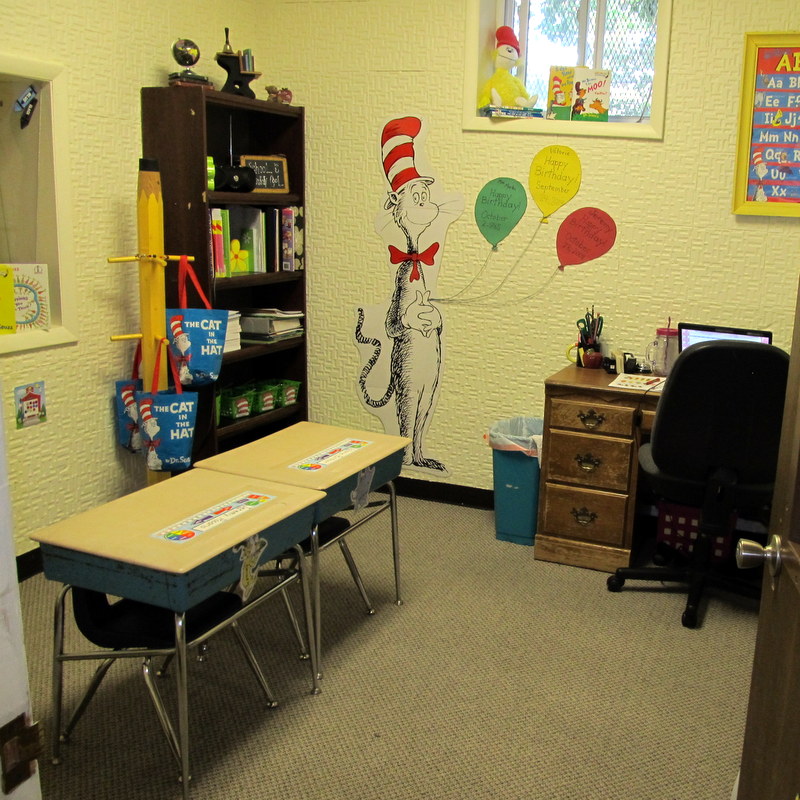
York, Pennsylvania, population 400,000 and growing, is a far cry from the quiet farm country where Marlea grew up. She grew up throwing bales and milking cows, a self-sufficient-and-proud-of-it country girl who never envisioned herself living in the city.
That changed in July of 2012 when Clayton Shenk, principal and administrator at TOP, called and asked if she would consent to teach.
“Of all the places I’ve gone, this is the place I most felt God’s leading,” Marlea says. “I was working at home, knowing I needed to go do something, knowing just having a day job wasn’t what I would do the rest of my life. Then I got the call to come here, and I fought it. I didn’t like the city, but I remember finally just knowing I had to leave my job back home and knowing I had to come to the city.
“Everything was so new, and getting used to the different culture really stressed me out. I was paranoid of street life, and I walked everywhere I went because I was scared to drive in traffic. I was petrified to walk my kids down the back alley and across the street to the playground. I would make them all hold onto a rope, which was a big joke. They felt like they were tied to it. They were born and raised in the street, playing football, riding bikes. They’re used to playing away until somebody yells, “Car!” and then they all run to the side and wait.
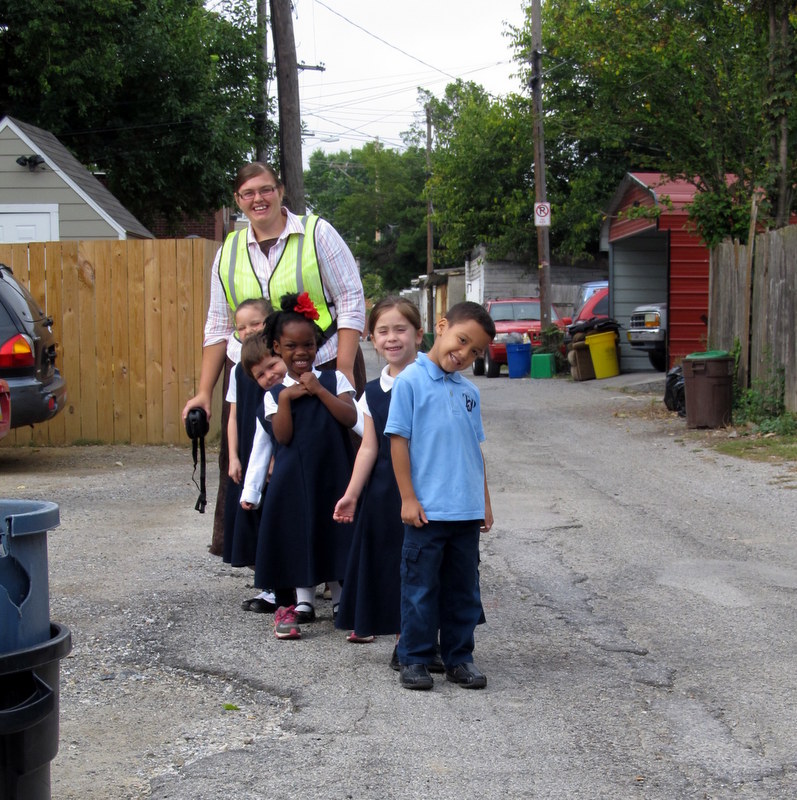
“It’s such a different culture. I grew up on a farm and was raised to work and live off the land. You walk down the street here and nobody’s working; they’re all sitting out on their porches. We took the kids to a farm on a field trip; a lot of them didn’t know where milk came from.
“Another thing I had to overcome was the issue of cleanliness. You kind of have to overlook the stinky child–although we’re allowed to send a note home if it’s a regular thing. I had to realize you have to love these children. They can’t help if they don’t have their laundry done at home, or no one to help them brush their teeth. We’ve often had lice and bed bugs carried to school, and do lice checks regularly–but God is in control of that, too, and I haven’t gotten lice yet, even when my student had them.
“Teaching here, I’ve learned a whole new dimension of the word love–loving the unlovable and realizing the deeper need of their soul. Even if they don’t learn how to work, don’t learn their math, what are they?”
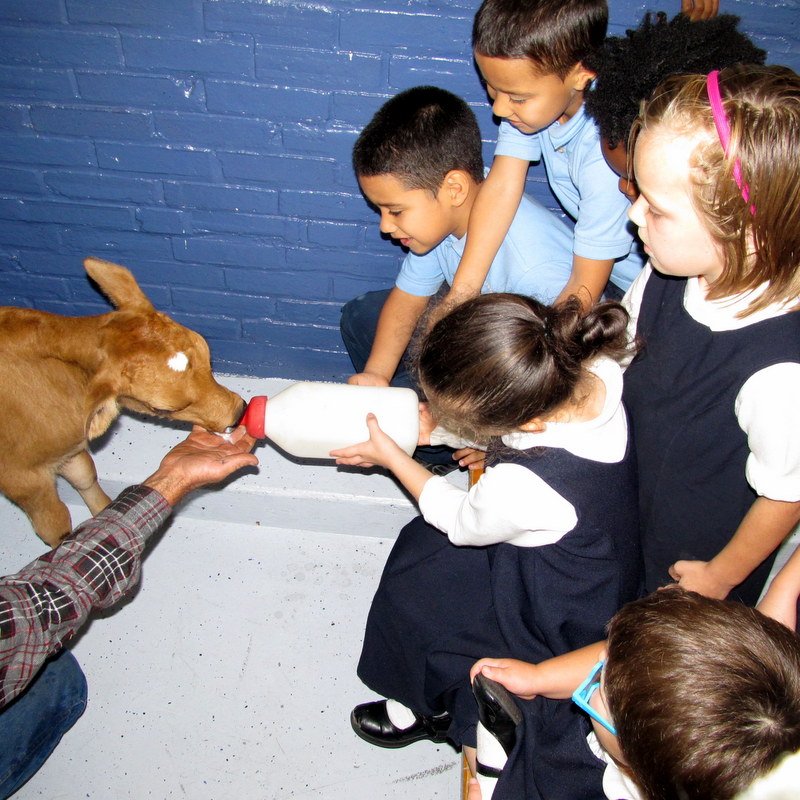
This is the purpose of Tidings of Peace Christian School, to reach into homes and lives with the love of Jesus. The school was started in 1994 by Clayton Shenk and the Tidings of Peace Mennonite Church which he pastors. Inspired by an inner-city Christian school in Reading, Pennsylvania, the congregation told the Lord that if they had one committed teacher, three students, and $5000 in the bank by July 1st, they would start a school. When July 1st came and they had none of those things, they decided “not this year.”
But on July 3rd, the owner of a building right down the street from the church called Brother Clayton and offered to let him have the building for the price of the closing costs, since he wanted to get it off his hands before winter. And so Tidings of Peace Christian School began.
That first year there were five students. Today, twenty years later, there are forty-two students in grades kindergarten through twelfth. Maxed to capacity, with the seventh and eighth graders doing their classes in the nearby church building, they are in need of a larger building so they can expand.
At TOP, parents have the option of paying full tuition, paying partial tuition with a sponsorship, or giving $30 and ten hours of community service a month. The school is able to operate because of volunteer teachers, with donations, sponsorships, and fundraisers covering expenses.
Parents say they choose TOP because they want their children in a Christian school learning about God, or because their children were being bullied and pushed around in another school. At TOP, the children are treated with love and respect. TOP’s motto is, “Respect God, respect others, respect yourself.”
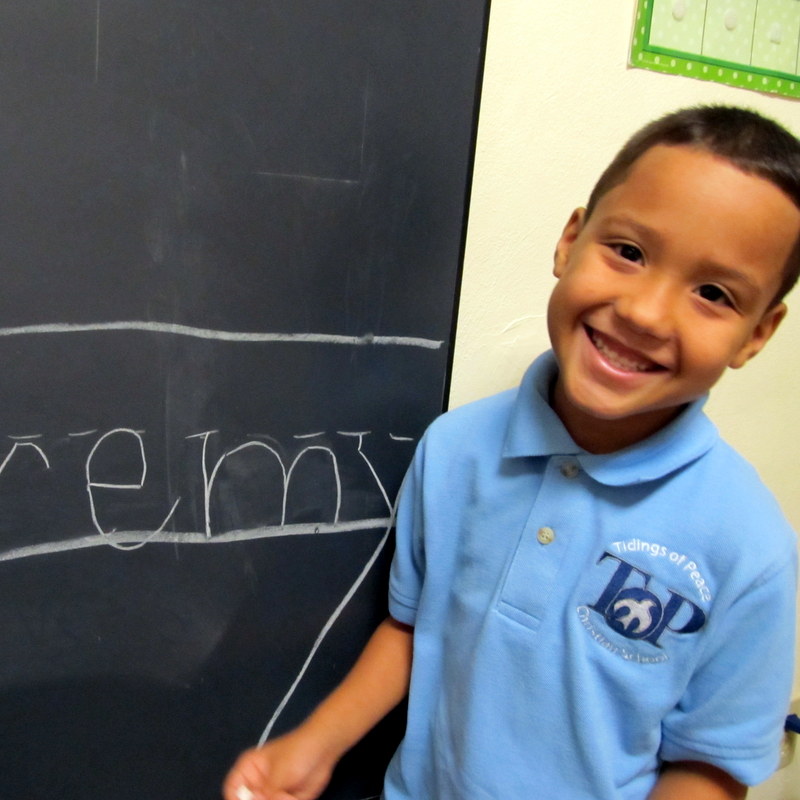
Respect doesn’t always come easily. The first year Marlea taught, she spent hours with one troubled little boy. Because of his home situation, he came to school with his homework undone, refused to obey his teacher, broke pencils, and fell on the floor in defiance. That situation, along with adjusting to the new culture, made her first year difficult. The little boy eventually improved his behavior, but sadly, his family moved away after he’d attended only half a year.
Marlea continues to grow in understanding her students. “I remember I was frustrated with a girl who would never pay attention,” she told me, “and Brother Clayton made the comment, ‘What’s most important, for you to teach her the schoolwork or for you to show her love?’
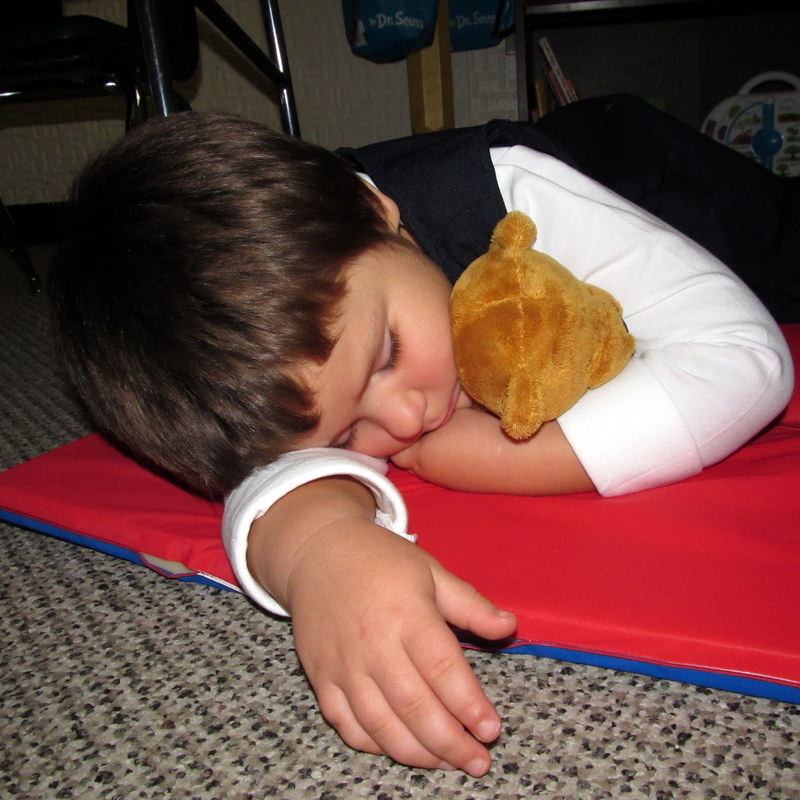
“He said there could be other things in her life making it hard for her to concentrate, and the longer I’m here, the more I realize he was right. You see evilness here that you don’t see in the country. You walk out on the street and see the moms and dads yelling at their kids, and worse.
“Just down the street from us there’s a lesbian couple who always have a lot of kids around their house, and they’re always noisy with yelling and drunkenness. The cops were out there just the other night to settle an argument between the two ladies. And down the street is a gay couple who adopted children–so sad. Where I grew up, the neighbors were married, one man, one woman, and this gay/lez talk was just what you hear about.
“At school, the whole thing of ‘What would Jesus do?’ comes up a lot. They don’t understand why they need to do right, and we are trying to help them understand and live a more peaceable life. It’s so fun to teach them the Bible stories. Things that seem basic to us, that we’ve heard all our lives, they just soak up. To them it’s all new.
“With discipline, I learned you have to focus on the positive. They might get verbal abuse at home, and scolding them doesn’t have much effect. But words of affirmation really make them beam. I’ve learned you should look for the good in what they do and give twice as many positives as you do negatives.”
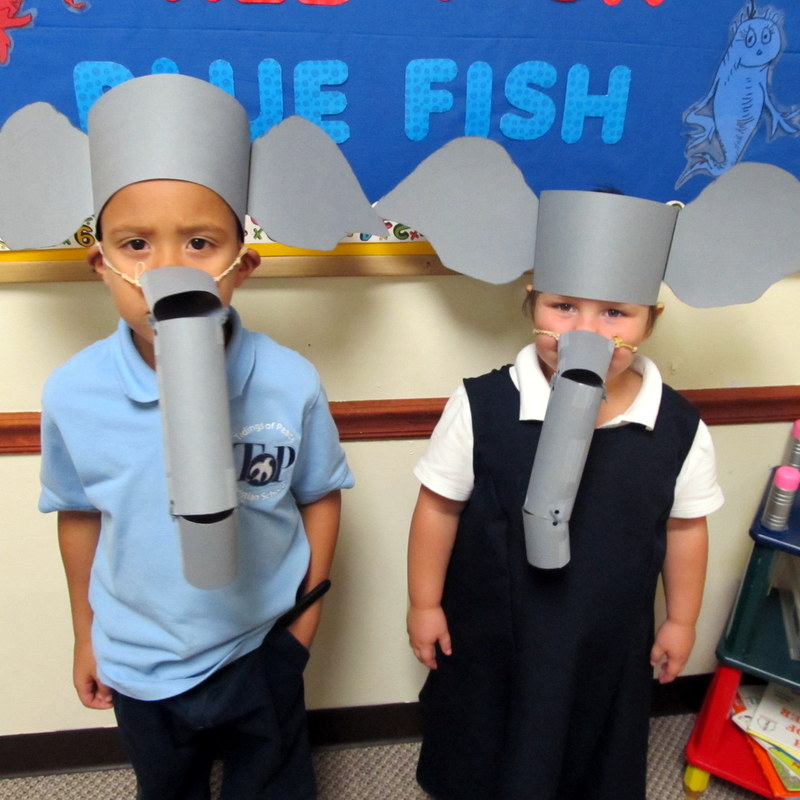
School ends at 3:00 p.m. Since her class this year is smaller and easier to handle than those of the other teachers’, Marlea helps with a multitude of after-school jobs: grading students’ work, mopping the gym floor, cleaning bathrooms and drinking fountains, fumigating for bugs, cooking, babysitting.
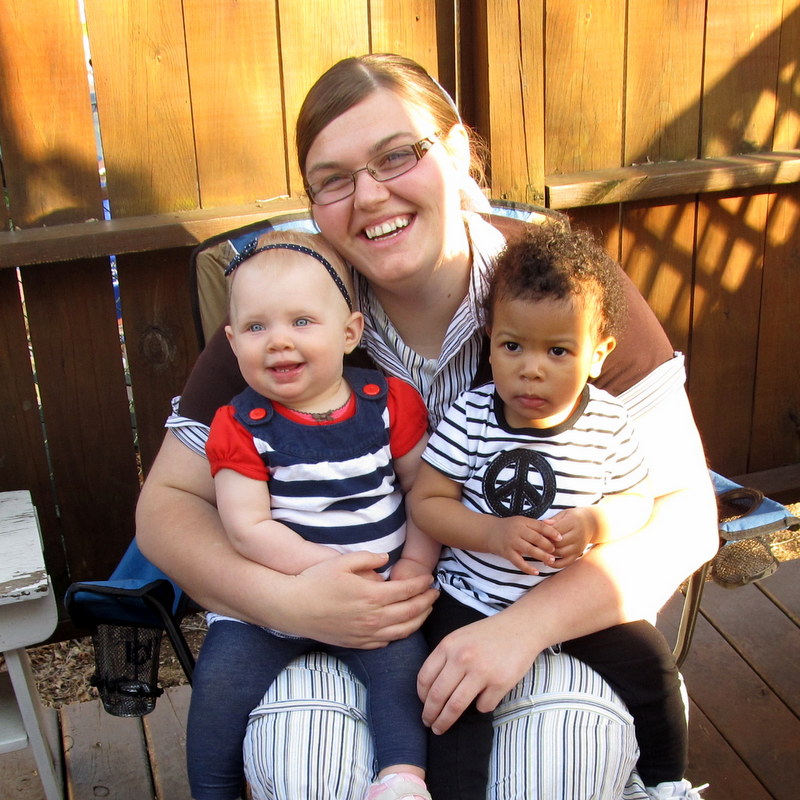
After-school streets are crowded and noisy. If she walks down the street a ways, Marlea might see kids walking home from school or kids riding bikes, scooters, and ripsticks. There will be pedestrians of all shapes and skin colors. Neighbors lounging on their porches, playing with i-phones or some other electronic gadget. She might smell cigarette smoke. Body odor. Beer on someone’s breath. On hot days, the smell of garbage from the bins. She might hear a siren passing in the distance, or the ding-ding of the snowcone truck. Rap music blaring from a passing car. A horn honking.
This is the city.
“Now when I’m out playing with the kids,” Marlea says, “I don’t let every person on the street bother me. Most of them know us and are friendly when they see the whole line of kids go walking by. I get worried sometimes, and we’re supposed to have phones on us all the time, but I’m not petrified anymore.
“I became a real Yorker when I started collecting pennies from the sidewalk. I found a dime one day. That was a really good day, the best day ever.”
It’s school as usual in York, Pennsylvania. If you would like to learn more about TOP, visit their website at www.tidingsofpeace.org.
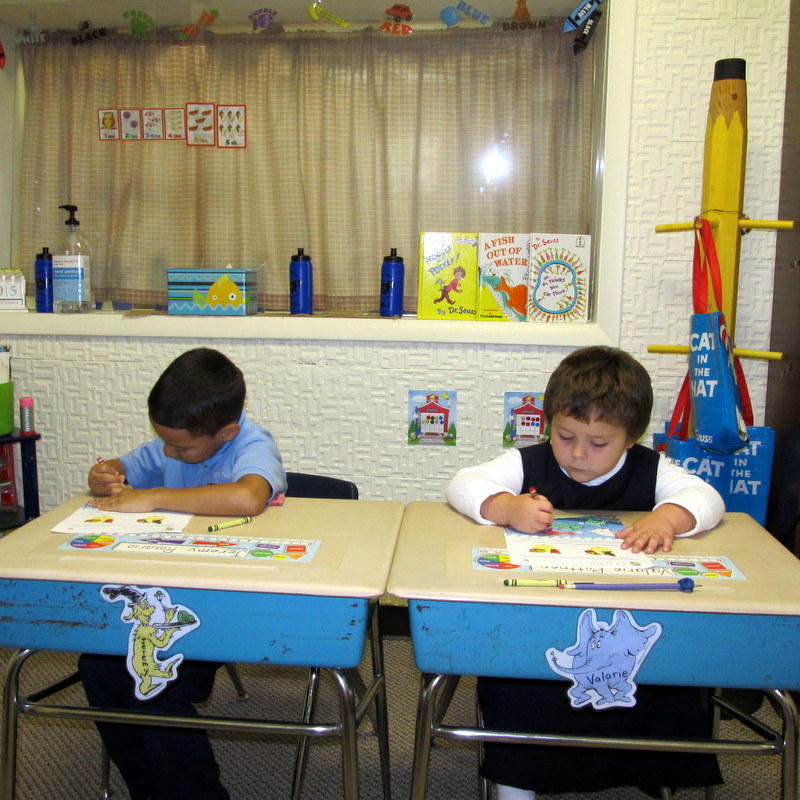
This article was written for the Daughters of Promise magazine, the November/December issue. To view the full issue of DOP, go to http://daughters-of-promise.org/home.htm.
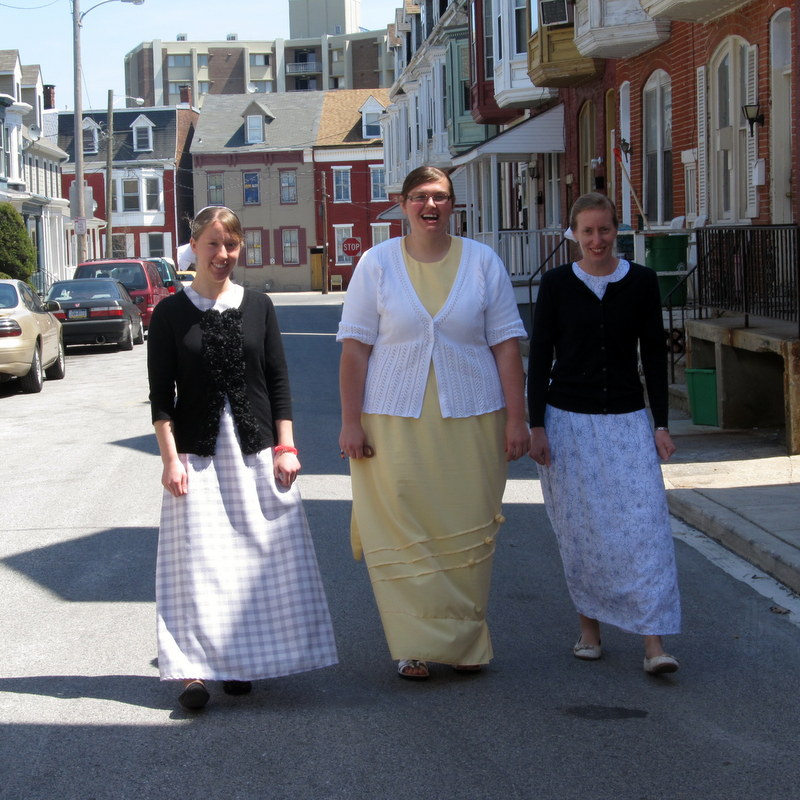
Nice write up Luci.
Miss you Marlea! Great article Luci! Miss you too!!!!!!
Marlea, So good to hear of your where-abouts! God bless you real good!
God bless you, Marlea, for making a difference in the lives of children in York. Whenever you come back to rural Wisconsin, you spread sunshine here too! May you have a blessed day.
Enjoyed reading about your school! Glad you are enjoying & finding purpose in the big city.